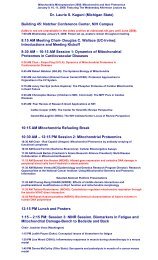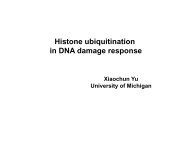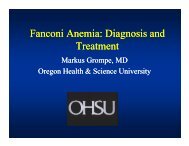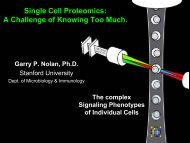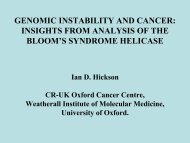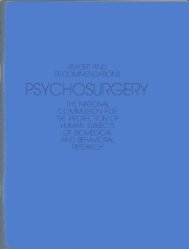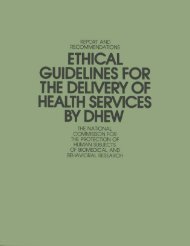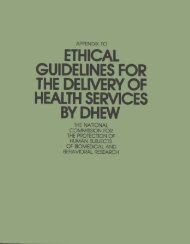RESEARCH ON THE FETUS - National Institutes of Health
RESEARCH ON THE FETUS - National Institutes of Health
RESEARCH ON THE FETUS - National Institutes of Health
Create successful ePaper yourself
Turn your PDF publications into a flip-book with our unique Google optimized e-Paper software.
3. Thomas K. Oliver, Jr., M.D. (Association <strong>of</strong> American Medical Colleges).<br />
Dr. Oliver cited improvement in statistics <strong>of</strong> infant mortality and morbidity,<br />
which may be attributed directly to research on the fetus and newborn infant.<br />
He described the research leading to improved care <strong>of</strong> Rh disease and respiratory<br />
distress syndrome, which could have been conducted only on the human fetus and<br />
newborn, as specific examples <strong>of</strong> advances resulting from research on the fetus.<br />
He urged the creation <strong>of</strong> an Ethical Advisory Board to review those research proposals<br />
which raise ethical questions, rather than the imposition <strong>of</strong> guidelines<br />
that would not be responsive to changing circumstances.<br />
4. Judith Mears (Reproductive Freedom Project, American Civil Liberties<br />
Union). Ms. Mears urged that the Commission not draft protections for the fetus<br />
that would undermine the Supreme Court's rulings in Doe v . Bolton and Roe v . Wade<br />
regarding a woman's rights with respect to abortion. In addition, she urged the<br />
support <strong>of</strong> research to improve the safety <strong>of</strong> abortion procedures. (Ms. Mears<br />
agreed, during questioning, that the Roe and Doe decisions do not speak to the<br />
issue <strong>of</strong> experimentation and would not, therefore, render regulation <strong>of</strong> such<br />
research unconstitutional so long as a woman's access to abortion and other<br />
health services is not abridged.)<br />
5. David G. Nathan, M.D. (Pr<strong>of</strong>essor <strong>of</strong> Pediatrics, Harvard Medical School).<br />
Dr. Nathan focused his discussion on fetoscopy. He described this experimental<br />
technique for obtaining a sample <strong>of</strong> fetal blood to enable prenatal detection <strong>of</strong><br />
disorders such as sickle cell disease and thalassemia, the reasons for conducting<br />
initial trials in women about to undergo abortion, and the evolution <strong>of</strong> the technique<br />
to the point where it has had successful clinical application. Dr. Nathan<br />
stressed the importance <strong>of</strong> studies that can be conducted simultaneously with the<br />
abortion procedure and consequently avoid any possibility <strong>of</strong> a change <strong>of</strong> mind<br />
about abortion after the research has begun.<br />
6. Audrey McMahon (mother <strong>of</strong> two developmentally disabled children).<br />
Ms. McMahon stressed the need for research into the causes and treatment <strong>of</strong><br />
developmental disabilities, and urged that such research not be curtailed.<br />
42



